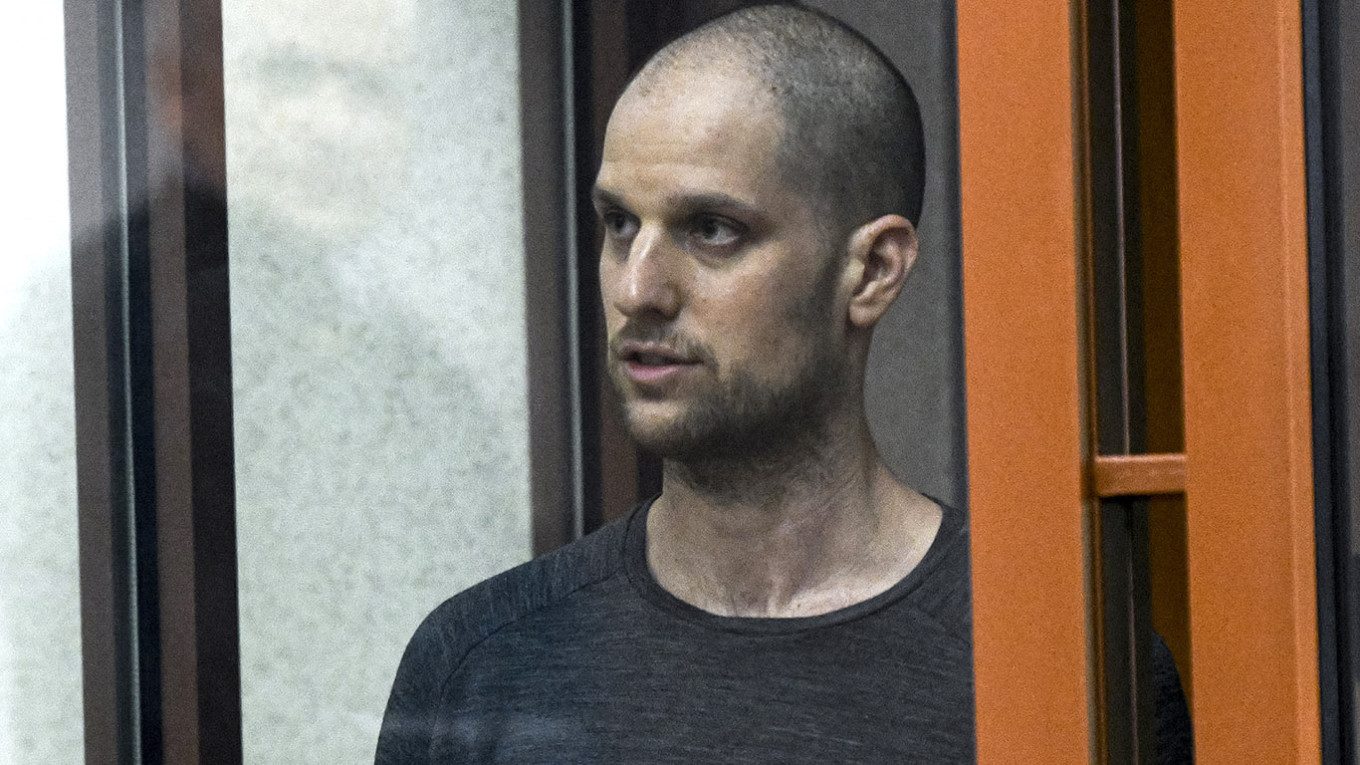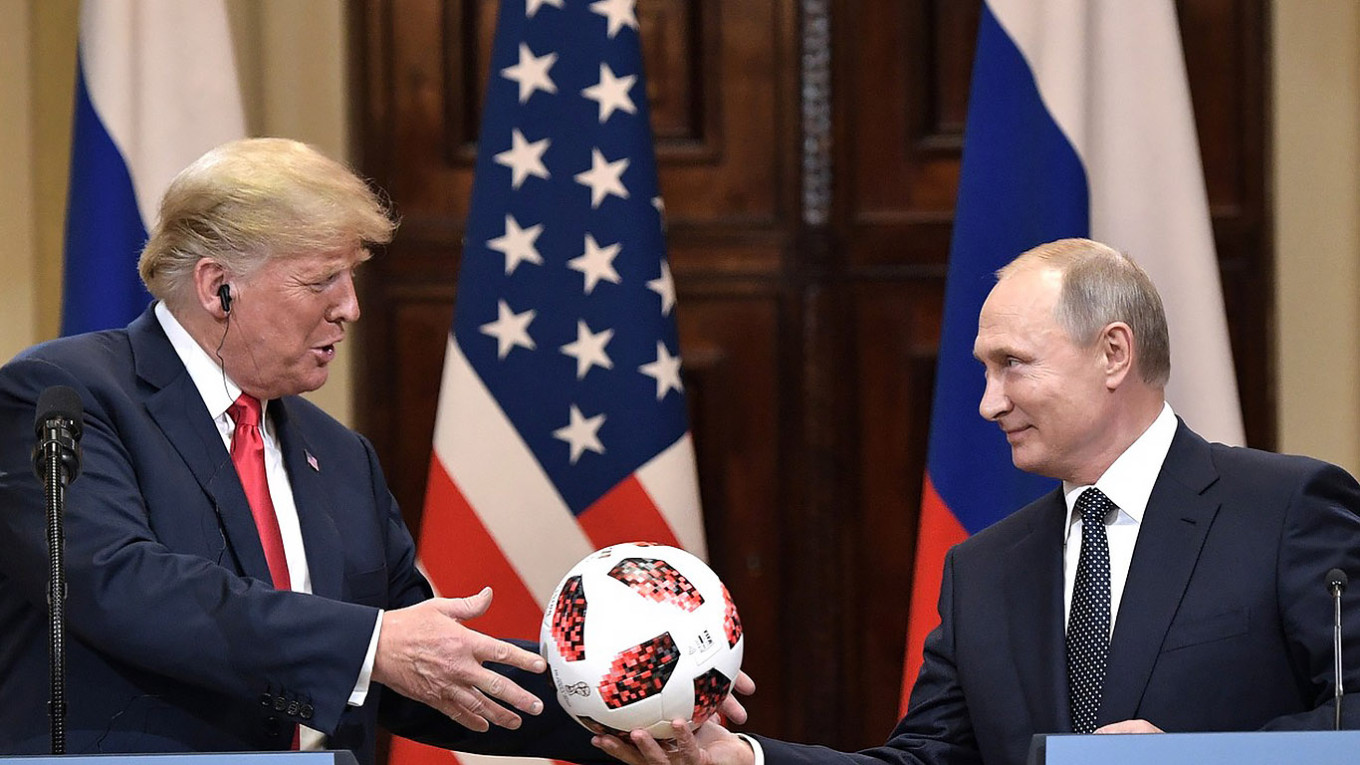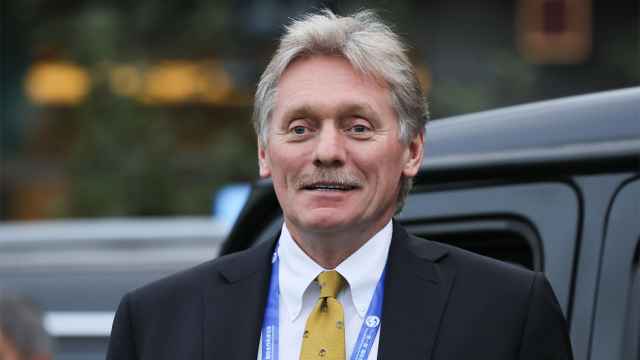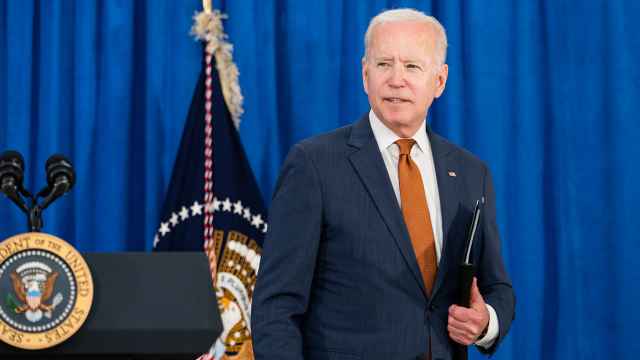The imprisonment of Wall Street Journal reporter Evan Gershkovich is a means for the Kremlin to achieve several strategic objectives against its adversary the United States.
Gershkovich, 32, a U.S. citizen, was sentenced to 16 years in prison on espionage charges on Friday following a swiftly executed trial that his employer and the U.S. government decried as a sham — an unprecedented case against a foreign journalist in modern Russia.
If a prisoner exchange involving Gershkovich does take place — and all the requirements for this are now in place — President Vladimir Putin will maximize his propaganda gains by handing over an "American spy" who is in reality a talented journalist. The swap will serve as confirmation that this tactic — holding U.S. citizens as political pawns — is an acceptable and effective means for the Kremlin to get what it wants the future.
The Russian army's failed attempt to capture Kyiv on Putin's orders in February 2022, and the bloody war that has followed, presented the Kremlin with a number of dilemmas.
The Kremlin needed to maintain a communication channel with the White House, even as the U.S. has sought to brand Russia as a pariah state and imposed diplomatic and economic sanctions on Moscow. The Kremlin has repeatedly acknowledged that relations with Washington under Biden have reached their lowest point since the Cold War — perhaps even worse. How can one find any positives in such a relationship? Or at least make the other side willing to talk? One must create conditions where you have something the other side really needs. Gershkovich became the piece of leverage that the Kremlin needed.

Another dilemma is how to make foreign journalists in Russia feel less at ease without casting them out altogether. After all, it is impossible to force them to abide by the Kremlin’s euphemisms about the war, or to keep silent about the victims of Russian strikes on Ukraine and the discontent of relatives of Russian soldiers, political repression, and the death of Kremlin foe Alexei Navalny. And unlike with domestic Russian media, the Kremlin can't force The Wall Street Journal's advertisers to stop cooperating with it or “call and yell” to their editor-in-chief after another acrimonious publication.
How should one go about addressing this? Imprison an American journalist and sentence him to 16 years, thereby sending a clear message to all foreign media editorial boards in Russia: "If you don't obey us, you will follow Gershkovich." This warning would be impossible for foreign media in Moscow to ignore.
The Kremlin's third dilemma is how it should play along with its favorite in the U.S. presidential election. This one is quite straightforward. Under Democrat Joe Biden, relations between Washington and Moscow have done nothing but deteriorate. Russia has invaded Ukraine, political rhetoric in both countries is increasingly hawkish, and experts say the likelihood of a nuclear conflict is higher than ever.
However, according to Kremlin favorite Donald Trump, all of this can be avoided. Trump says he can end the war and negotiate a peace agreement with Moscow. The Kremlin is publicly playing along, trying to support Trump. They see the return of Gershkovich as a symbolic gesture of goodwill and an invitation to search for compromise. This gesture is most likely to materialize after the U.S. election, with the Kremlin hoping for the return of Trump, Putin's longtime friend, to the White House.
Last but not least, one of the Kremlin's known conditions for a swap to release Gershkovich — as Putin himself has recently indicated — is the return of Vadim Krasikov, a GRU agent imprisoned in Germany for the 2019 murder of a Chechen dissident, to Russia.
Reports earlier this year said that Berlin was ready to give up Krasikov in exchange for “two American citizens and Alexei Navalny” before Navalny died in an Arctic prison colony this February.
Even though this apparent deal fell through when Navalny died, Putin remains personally determined to bring back his secret agent at any cost, honoring a Soviet tradition. This is not based on romanticism but on practical realities. If the regime does not rescue its spies who perform covert operations on its behalf, no one will be willing to undertake such missions in the future.
Even if Trump does return to the White House, the number of enemies that the Kremlin regime has will only increase with time. It will not stop at Krasikov and people like him whom it will need in the future for its “dirty work.”
A Message from The Moscow Times:
Dear readers,
We are facing unprecedented challenges. Russia's Prosecutor General's Office has designated The Moscow Times as an "undesirable" organization, criminalizing our work and putting our staff at risk of prosecution. This follows our earlier unjust labeling as a "foreign agent."
These actions are direct attempts to silence independent journalism in Russia. The authorities claim our work "discredits the decisions of the Russian leadership." We see things differently: we strive to provide accurate, unbiased reporting on Russia.
We, the journalists of The Moscow Times, refuse to be silenced. But to continue our work, we need your help.
Your support, no matter how small, makes a world of difference. If you can, please support us monthly starting from just $2. It's quick to set up, and every contribution makes a significant impact.
By supporting The Moscow Times, you're defending open, independent journalism in the face of repression. Thank you for standing with us.
Remind me later.








